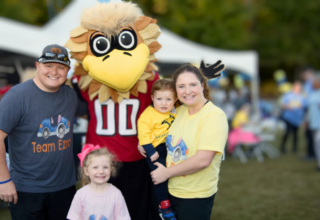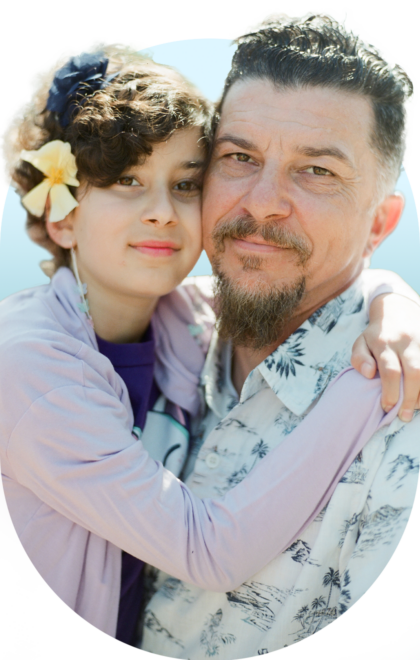
We Need Cures. We Need Action.
One mother shares her perspective about pediatric brain cancer's impact on the entire family.
When you meet your child’s healthcare team, you might feel overwhelmed by the number of people caring for your child. This list will help you understand their different roles.
This doctor is an expert in using medicines to reduce pain and anxiety during surgery and medical tests in the hospital.
This expert works with children and their families during hospital stays. They help your child deal with anxiety in the hospital and during medical tests and treatments, often using fun and play that is just right for the age of your child.
This expert plans meals for patients based on their medical needs. They may also keep track of your child’s weight and how many calories your child takes in and may give advice for how your child should eat after they leave the hospital.
This doctor is an expert at finding and taking care of problems with your child’s endocrine system (the glands and organs that make hormones). They may be part of your child’s team if your child’s brain tumor affects one of the glands in the brain or if your child gets radiation therapy.
This doctor has finished medical school and a residency and is now getting extra training to become an expert in a specialty like neurosurgery or oncology.
This doctor only cares for patients while they are at the hospital.
This doctor is an expert in the nervous system. The nervous system includes the brain, spine, and nerves that send messages to and from other parts of the body.
This nurse is an expert at working with a doctor to use medicines to control pain and anxiety during surgery and medical tests in the hospital.
This nurse has finished extra years of training to become an expert in one area of medicine, earned a master’s degree, and passed a certification test. They help diagnose and treat patients and perform tests and procedures. The nurse practitioner is often the main contact for families on all matters of care.
This expert works with children to improve fine motor skills that use small muscles that have been affected by the tumor or surgery. They may work on skills like swallowing or hand-eye coordination that your child uses every day going to school or playing sports.
This doctor is an expert at diagnosing and treating tumors in a child’s brain or spine. They are often the doctor who manages the plan your team follows to treat your child’s tumor.
This doctor is an expert in surgery on a child’s brain and spine, including surgery to take out part or all of a brain or spinal cord tumor or to put in a shunt.
This doctor is an expert in diagnosing and treating many kinds of cancer in children, often including brain and spinal cord tumors.
This nurse is an expert in taking care of children with cancer. They may work at your child’s bedside in the hospital or clinic or may work as a nurse navigator or case manager to plan and care for your child alongside the rest of the team.
This expert works with your child to improve gross motor skills that use the large muscles affected by your child’s brain tumor or treatment. They help with exercises, stretches, and other ways to help your child move better and feel less pain.
This medical expert works under the supervision of a doctor and can order and review tests, assist in surgery, and write prescriptions.
This doctor is an expert in treating problems a child might have with thoughts, emotions, or behaviors.
This doctor is an expert in using radiation to treat different kinds of cancer, including brain tumors.
This doctor is an expert at taking and reading medical images such as MRIs, X-rays, CT and PET scans, and ultrasounds.
This medical expert has graduated from nursing school and passed a certification test. They can give medicine, draw blood, and monitor patients.
This doctor has finished medical school and is now spending three to seven years in on-the-job training in one specialty, such as pediatrics. Residents are supervised by attending physicians who approve their decisions.
This expert works with families to give them emotional support to deal with a child’s brain tumor diagnosis. They may also help you find practical resources like financial help, transportation, and a place to stay while your child is in the hospital.
This expert works with your child to help improve problems with speaking or swallowing that may be caused by a tumor, surgery, or scar tissue.
Age-appropriate videos can help parents and caregivers talk with children about cancer. The Pediatric Brain Tumor Foundation’s Imaginary Friend Society is a series of short, animated videos that talk about cancer-related topics in a kid-friendly way. In the following video, imaginary friend Baxter Bravado introduces the team of superstars who take care of young cancer patients when they’re in the hospital.
One mother shares her perspective about pediatric brain cancer's impact on the entire family.
Virtual Event
1:00 - 2:00 PM EST

